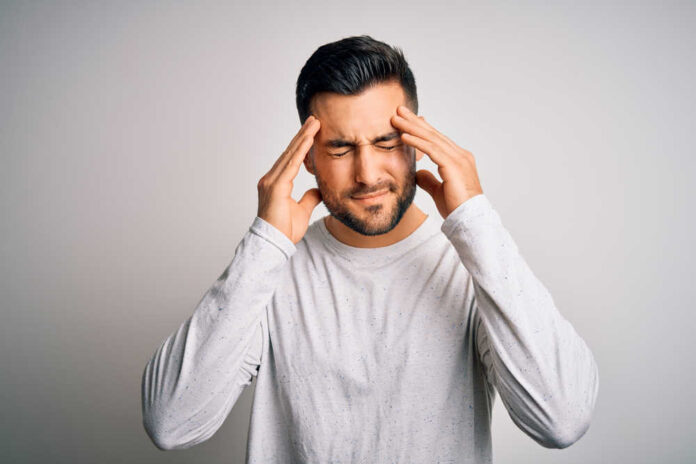
Around 50% of people suffer from some type of headache disorder. For some, these headaches are just a minor annoyance. But for others, they can be quite debilitating and uncomfortable.
Sometimes a headache can feel as if your whole head is throbbing. Other times, it may feel like a sharp pain in one particular point or area.
A headache on your left side is usually classified as a migraine, but there are a few other potential causes.
Migraine
A migraine is a type of headache that is often accompanied by symptoms like nausea and light sensitivity. Migraines are typically felt as an intense, throbbing pain on one side of the head.
Some migraines may also present with an aura—a visual or sensory disturbance, such as seeing flashes of light or experiencing blind spots.
Migraines are the most common reason for a left-sided headache. They affect approximately 1 in 6 people in the United States.
Cluster Headaches
Cluster headaches are, as the name suggests, headaches that tend to occur in “clusters.”
People who experience them will often have repeated headaches for several days or weeks, followed by several weeks or months without any headaches.
Cluster headaches are rare but very intense and painful for people who experience them.
Along with the pain on one side of the head, cluster headaches are often accompanied by other symptoms, such as red or watery eyes, runny nose, and flushing or sweating on the same side of the head where the pain is felt.
Sinus Headaches
Sinus headaches are typically felt in the front on both sides of the head, but they can also be felt on just one side. They are accompanied by other sinus symptoms, such as a stuffed or runny nose, congestion, and facial pain or pressure.
Sinus headaches are caused by inflammation of the sinuses. This can be due to an infection, allergies, or other causes.
Medication Side Effects or Overuse
Headaches can sometimes occur as a side effect of some kinds of medications. This includes medications such as:
- Birth control medications
- Hormone replacement therapy
- Nitrates
- Analgesics (aspirin and ibuprofen)
- Pain relievers
- Opioids
- Caffeine
If you think your headaches may be related to your medications, speak to your doctor or pharmacist. They can help you identify any potential side effects and change your medications if necessary.
When to See a Doctor
In many cases, your headache or migraine will resolve independently and can be treated at home with over-the-counter pain relievers. However, there are some cases where you should see a doctor, such as:
- If you have a headache that is severe or lasts longer than a few days
- If your headache is accompanied by a fever, stiff neck, blurry vision, vomiting, numbness, or weakness
- If you have a headache after a head injury
- If you have never had a headache before and suddenly start experiencing them frequently
- If your headaches are getting worse
- If the headache affects your cognitive function or personality
- If your headaches are preventing you from meeting your responsibilities
- If you have any other concerns about your headaches
Your doctor can help to determine the cause of your headaches and recommend treatment options.






















